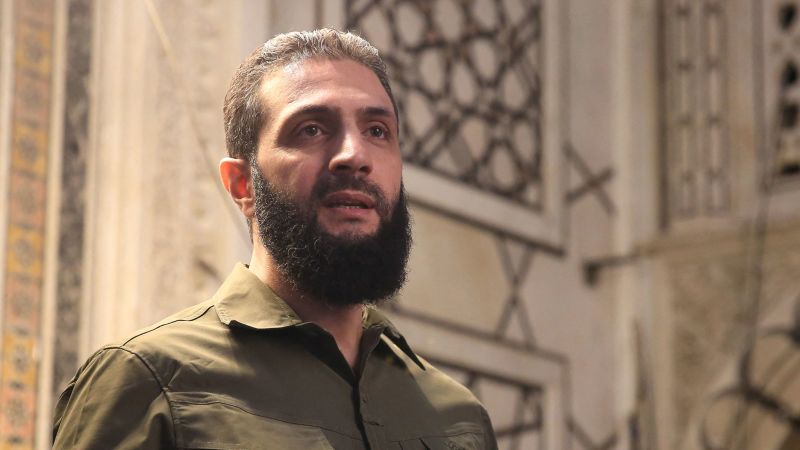Syria: Former Rebel Leader Ahmed al-Sharaa Made Interim President

The Facts
Ahmed al-Sharaa, former leader of Hayat Tahrir al-Sham (HTS), was announced as Syria's interim president on Wednesday. Al-Sharaa, who's been Syria's de facto leader since December 2024, led HTS' offensive to topple former Pres. Bashar al-Assad.
At a conference on "the victory of the Syrian revolution" attended by Foreign Minister Asaad al-Shaibani and the heads of other armed factions, Col. Hassan Abdul Ghani said al-Sharaa — formerly known as Abu Mohammed al-Jolani — will represent Syria globally.
The Syrian state news agency (SANA) reported that the constitution has been suspended, with al-Sharaa authorized to form a transitional legislative council. Assad's parliament, army, and security agencies have also been disbanded.
The Spin
Narrative A
Ahmed al-Sharaa's ascent to Syria's interim presidency is a pragmatic response to the nation's dire need for stability. A shrewd negotiator, he has opened diplomatic channels with former adversaries — securing the removal of a US bounty and signaling a break from his past as Abu Mohammed al-Jolani. While doubts linger over the HTS' transformation, his outreach to minorities and commitment to constitutional reform suggest a pivot toward inclusive governance. Syria's future hinges on his ability to turn rhetoric into reality.
Narrative B
Ahmed al-Sharaa's transformation from jihadist commander to statesman demands deep skepticism. His rebranding as a pragmatic leader may be more tactical than genuine, raising concerns about authoritarianism cloaked in diplomacy. Ongoing detentions under HTS, his fundamentalist roots, and the failure to prioritize transitional justice cast doubt on his commitment to inclusive governance. Damascus will resist any leader who merely repackages authoritarian rule under a new guise. Syria needs true reconciliation, not reinvention.






